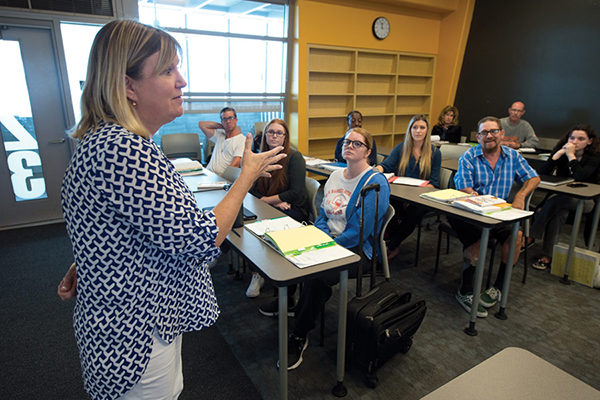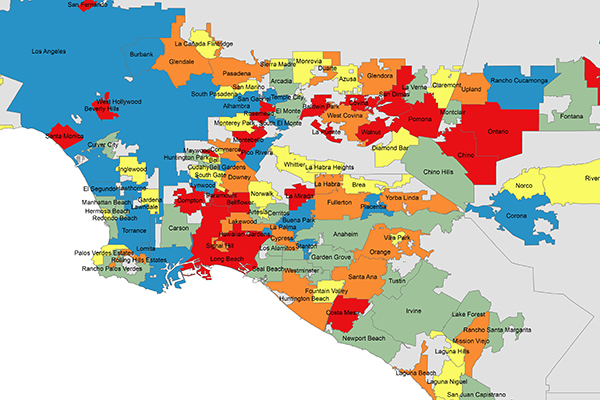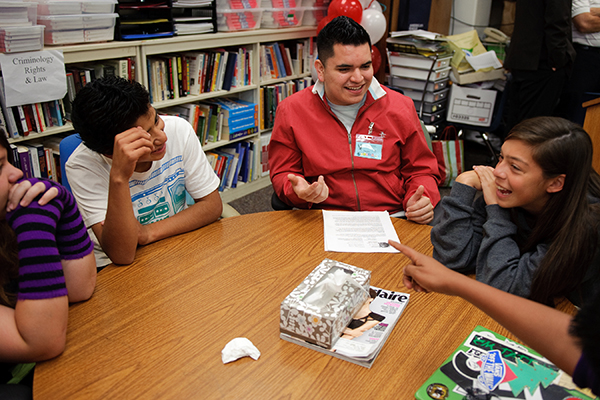The School of Social Ecology is committed to engaging the community through research, teaching and student service.

Field Study
More than 40 years ago, Social Ecology helped pioneer experiential learning by requiring undergraduates to complete at least 100 hours of field-based learning outside the classroom. Today, the School’s Field Study program pushes students to apply classroom-based learning to real-world problem-solving.

Metropolitan Futures Initiative
The Metropolitan Futures Initiative sifts through mountains of data to improve understanding of communities and their potential for integrative and collaborative planning and action. An interdisciplinary research team generates insights that are shared with local and regional policymakers – helping create a brighter future for Southern California.

Center for Evidence-Based Corrections
In an effort to put science before politics when managing state correctional populations, the Center for Evidence-Based Corrections evaluates juvenile and adult prison programs – including rehabilitation, parole and reentry programs – and conducts research to help corrections officials make policy decisions based on sound evidence.

Irvine Lab for the Study of Space and Crime
The Irvine Laboratory for the Study of Space and Crime is dedicated to researching the social ecology of crime at various geographic and spatial scales, from street segments to blocks, neighborhoods, cities, counties, and metropolitan areas. Each year in the lab’s annual crime report, researchers employ a new approach to calculating crime rates to enhance city comparisons.

Criminology Outreach Program
Established in 1999, the Criminology Outreach Program helps under-served students in the local community by holding a series of educational classes about the legal system. Taught by undergraduate students, the program exposes junior high and high school students to the field of criminology and the benefits of attending college, encouraging them to attend.
